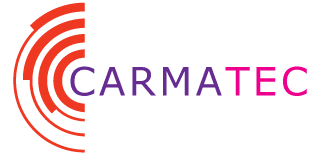- Open source – free to download and use.
- Runs on multiple platforms including Windows, Linux, Mac OS X etc.
- Compatible with almost all contemporary local servers such as Apache, IIS etc.
- Easy to learn & runs efficiently on the server side.
- Supports a range of databases such as MySQL, dBase, InterBase, FrontBase, IBM, DB2 etc.
- Supports Object Oriented Programming, making it more powerful and secure.
- PHP based frameworks such as CakePHP, Zend, Codelgniter, Magento, joomla enable quicker application development.
Hypertext Preprocessor/PHP is an open source server side scripting language used to create dynamic website pages. One of the most popular scripting languages in the world, PHP offers a host of advantages. In this post, we would like to discuss a few of the key advantages, application development in PHP offers:
Dynamic: PHP is a server side scripting language that creates dynamic pages with customized features. This results into creation of a user-friendly and interactive web application or website.
Ease to use: PHP is very easy to learn as compared to the other programming languages since its syntax is based on languages like C and Perl. You can place a PHP anywhere in the document and a typical PHP file contains a little PHP scripting code and HTML tags. A basic PHP script starts with <?php and ends with ?>.
Free of Cost: Since PHP is an open source web language, it’s completely free of cost.Today almost all the small and big companies are using PHP for web development.
Efficiency in Performance: Depending on how you code, PHP can turn out to be an efficient web language to use. In fact, PHP is known to be scalable when writing code as well as in creating applications and is very reliable when you need to serve several web pages.
Supports all Major Databases: It supports all major databases including MySQL, dBase,
InterBase, FrontBase, ODBC, IBM, DB2, PostgreSQL, SQLite, etc.
Protocols: You can easily interact with other services using protocols such LDAP, HTTP, SNMP, NNTP, and others.
Object Oriented Programming: It refers to the method of programming that invokes the use of classes to organize the data and structure of an application. With PHP, OOP started to become feasible with the release of PHP 4, but really found its true meaning with PHP 5. Now, as the world awaits the release of PHP 6 we await another great leap in the evolution of PHP OOP.
PHP has become popular because of its simplicity and the addition of Object-Oriented Programming that makes it more powerful and secure.
Object means a real world entity such as pen, car, table etc. Object-Oriented Programming is a methodology to design a program using classes and objects. It simplifies the software development and maintenance by providing some concepts such as Class, Object, Inheritance, Polymorphism, Abstraction, Encapsulation etc. This is a technique that is widely used in the modern programming languages.
Huge Community: The PHP community is huge. Owing to its popularity, an unbelievable 21 million indexed domains use PHP and reports suggest that it is the most commonly used open source software in enterprises and more than 76% of the websites that are on the internet, use PHP. Also, some of the top sites such as Facebook, WordPress, Wikipedia, and Flickr have all been built using PHP.
PHP frameworks : PHP based frameworks help you build the application and website faster with the use of its various additional features. Lots of frameworks such as CakePHP, Zend, Codelgniter, Magento, joomla, PEAR, are available in PHP these days.
Features related to PHP based frameworks:
- MVC coding pattern:
Nowadays, most of the frameworks use MVC architecture. Creating an application using MVC architecture means they are separating the data (model) from the Controller (which pulls the data from the model to give to the view) and from the View (what the user sees).
This coding pattern helps divide the business logic from design & presentation. The pattern has three layers such as Model layer for database application, View layer for the implementation of the graphical user interface and Controller layer for business logic. Every layer can be worked independently of the others. A well-developed MVC system should allow a front-end developer and a back-end developer to work on the same system without interfering, sharing, or editing files either party is working on. This feature helps to make the whole process faster, smoother and less complex.
- Security:
When it comes to security features, PHP frameworks is simply the best. Its core security and CRUD (Create, Retrieve, Update, and Delete) features allow securing the user submission process in less time. Further, the Object Relational Mapping (ORM) framework allows one to streamline SQL queries by presenting tables as classes. It also has its own shell for command-line interface stuffs. - Reduced cost & time
PHP frameworks help us create low cost applications and websites so most of the startup companies are using PHP frameworks.
PHP frameworks is remarkable when it comes to scaffolding code generation.
Besides these, it has some more features to help you with speedy PHP development of feature-rich applications at incredibly affordable costs:
- Richer query API.
- Support for any database type.
- Shorter URL Syntax.













